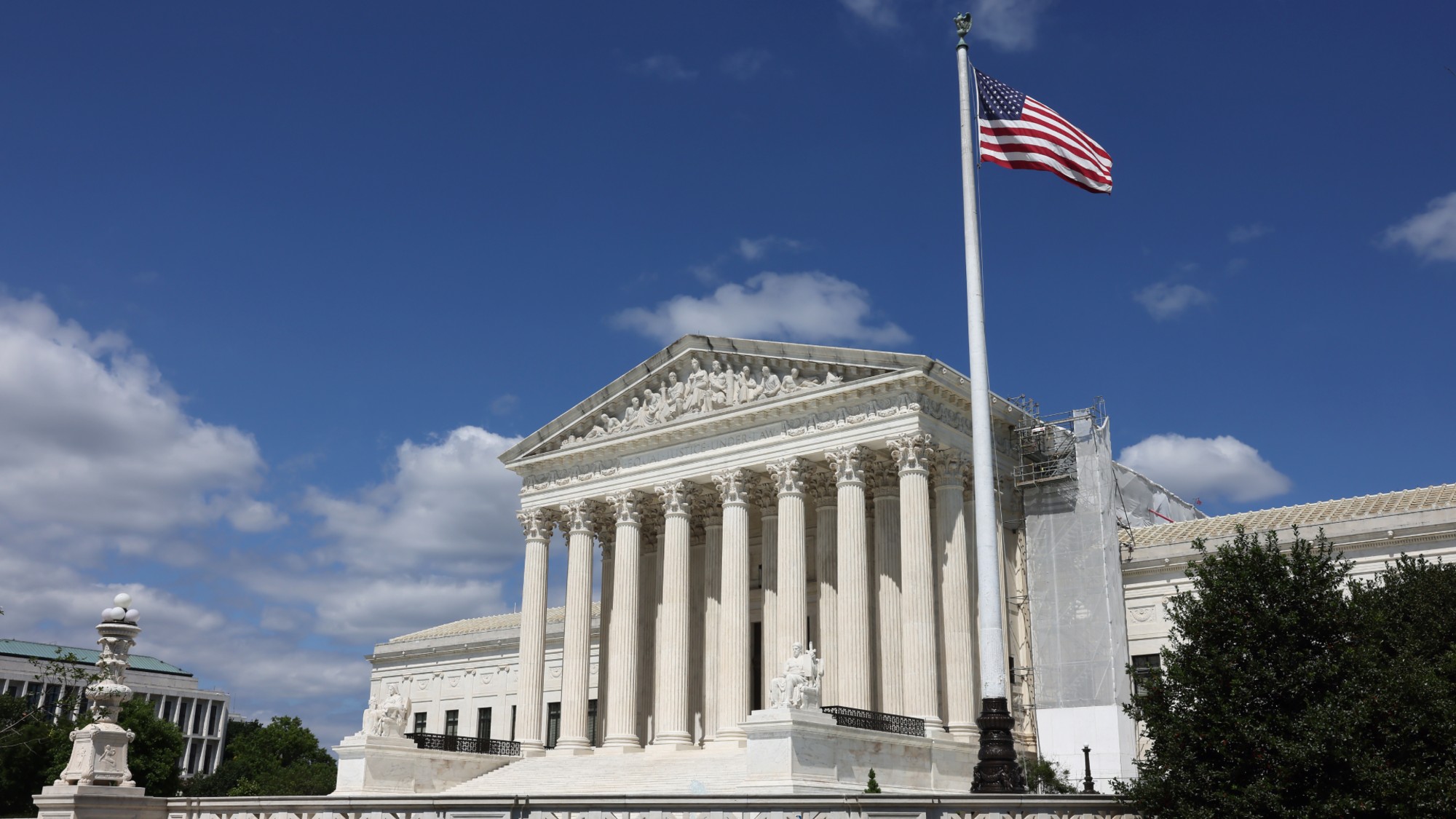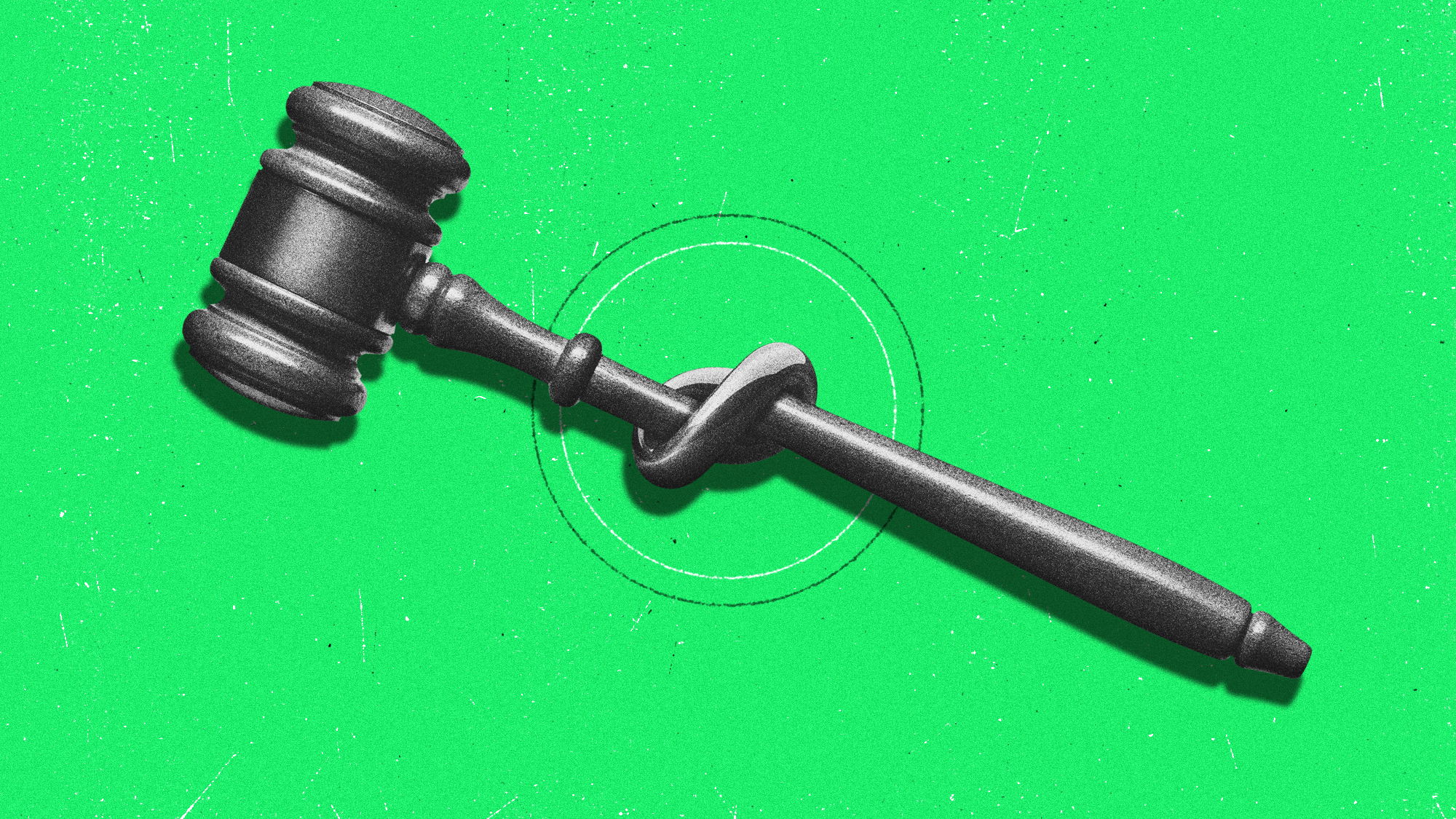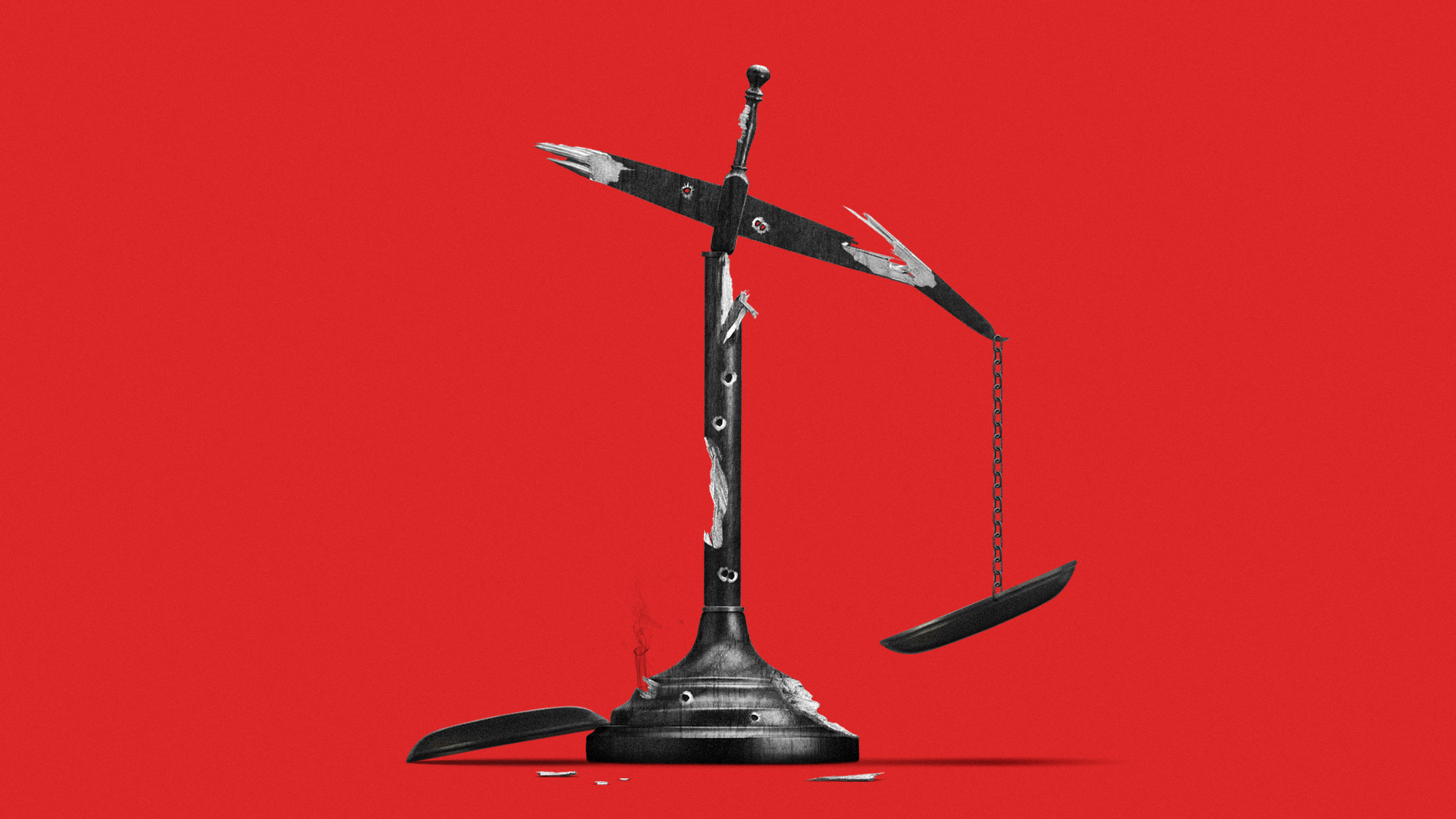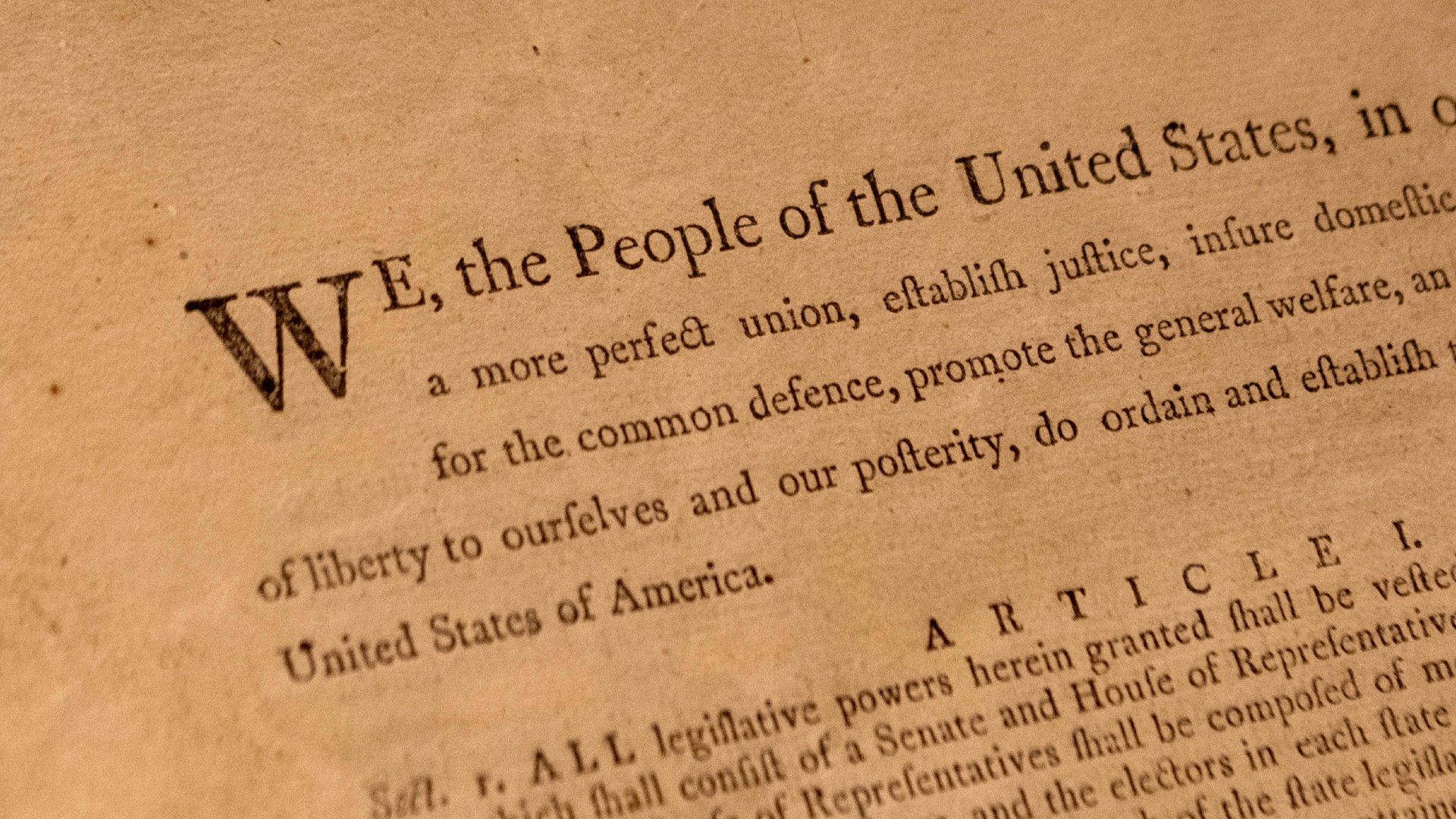What do Netanyahu’s judicial reforms mean for the future of Israel?
Democracy ‘fighting for its life’ as protests erupt after controversial bill passes the Knesset

A free daily email with the biggest news stories of the day – and the best features from TheWeek.com
You are now subscribed
Your newsletter sign-up was successful
Israel has seen some of the largest protests in its history after the country’s parliament, the Knesset, passed the first of a series of bills aimed at overhauling the judiciary.
Monday’s amendment limiting the Supreme Court’s power to declare some government decisions “unreasonable” was passed by 64 votes to none after last-minute compromise efforts collapsed, prompting the opposition to walk out in protest.
The controversial reforms to the judiciary have been the cornerstone of Prime Minister Benjamin Netanyahu’s nationalist coalition since it was sworn in at the beginning of the year. Supporters say the changes are needed to prevent judicial overreach – which the government says has been too politically interventionist – and put power in the hands of elected officials rather than unelected judges.
The Week
Escape your echo chamber. Get the facts behind the news, plus analysis from multiple perspectives.

Sign up for The Week's Free Newsletters
From our morning news briefing to a weekly Good News Newsletter, get the best of The Week delivered directly to your inbox.
From our morning news briefing to a weekly Good News Newsletter, get the best of The Week delivered directly to your inbox.
Critics claim the changes remove crucial checks and balances on the executive, and say they have sparked a constitutional crisis with hundreds of thousands taking to the streets leaving Israeli democracy “fighting for its life”, according to Yuval Noah Harari in the Financial Times (FT).
What did the papers say?
Eliminating the “reasonableness” review of government decisions is “only part of a far bigger plan to gut checks on executive power in Israel”, wrote Natan Sachs, director of the Brookings Institution’s Center for Middle East Policy. The overall goal is “in essence, to give a small majority the ability to do almost anything”.
Other proposed changes would give the Knesset final say over judicial appointments and power to overturn Supreme Court decisions with a simple majority. Should all of these laws come into effect, said Vox, “the courts – and Israeli society – will have little recourse to challenge government policy they understand to be illegal, wasteful, fraudulent, or undemocratic”.
In such a situation, said the philosopher and author Harari, “the government could also rig future elections, for example by banning Arab parties from participating – a step previously proposed by coalition members. Israel will still hold elections but these will become an authoritarian ritual rather than a free democratic contest.”
A free daily email with the biggest news stories of the day – and the best features from TheWeek.com
This would “drastically alter Israeli society on every conceivable level”, argued Vox, “likely pushing it in a more religious, hard-line direction” under Netanyahu and his allies.
Ultimately, said the news site, it comes down to whether Israel will ��remain a democratic state or become a religious autocracy”.
What next?
“Facing off against a growing portion of the population that is willing to do anything – anything! – to preserve the democratic values on which it was raised is a crazy, destructive, messianic, nationalist gang that believes in a kingdom of Israel stretching from the river to the river – that is, from the Nile to the Euphrates,” said former Knesset member Zouheir Bahloul in Haaretz.
He warned that in their battle against this “corrupt, fundamentalist handful”, “tens of thousands of people will continue taking to the streets, and their blood may well be the price”.
Protests are expected to continue in Jerusalem, Haifa and Tel Aviv and within minutes of Monday’s vote, appeals against the new law had already been filed with the Supreme Court.
Israel’s biggest workers’ union has also announced a labour dispute, “a preliminary step ahead of a possible general strike”, said Axios.
Perhaps most worryingly for the government, warned Reuters, is that the “deep divide” in Israeli society caused by the current crisis has even “seeped into the military”. Protest leaders have said that thousands of volunteer reservists would not report for duty “if the government continues with the plans” and former officials are “warning that Israel’s war-readiness could be at risk”.
To appreciate the magnitude of this step, said Harari, “it should be recalled that military service is a sacred duty for many Israelis” and that the army has for decades “always been off-limits in political controversies. This is no longer the case,” he said.
Netanyahu, who is 73 and was discharged from hospital on Monday morning having been fitted with a pacemaker, used a televised address to claim he would seek dialogue with the opposition with the aim of reaching an all-inclusive agreement by the end of November.
“We all agree that Israel must remain a strong democracy, that it must continue protecting individual rights for everyone, that it will not become a state of (Jewish law), that the courts will remain independent,” he said.
But opposition figures vowed to fight the changes, stressing they are in this for the long haul.
“This government can win the battle, but not the war,” opposition leader Yair Lapid said.
-
 5 calamitous cartoons about the Washington Post layoffs
5 calamitous cartoons about the Washington Post layoffsCartoons Artists take on a new chapter in journalism, democracy in darkness, and more
-
 Political cartoons for February 14
Political cartoons for February 14Cartoons Saturday's political cartoons include a Valentine's grift, Hillary on the hook, and more
-
 Tourangelle-style pork with prunes recipe
Tourangelle-style pork with prunes recipeThe Week Recommends This traditional, rustic dish is a French classic
-
 How far does religious freedom go in prison? The Supreme Court will decide.
How far does religious freedom go in prison? The Supreme Court will decide.The Explainer The plaintiff was allegedly forced to cut his hair, which he kept long for religious reasons
-
 The Supreme Court case that could forge a new path to sue the FBI
The Supreme Court case that could forge a new path to sue the FBIThe Explainer The case arose after the FBI admitted to raiding the wrong house in 2017
-
 ICC under attack: can court continue to function?
ICC under attack: can court continue to function?Today's Big Question US sanctions 'designed not only to intimidate court officials and staff' but 'also to chill broader cooperation', say rights group
-
 'Libel and lies': Benjamin Netanyahu's corruption trial
'Libel and lies': Benjamin Netanyahu's corruption trialThe Explainer Israeli PM takes the stand on charges his supporters say are cooked up by a 'liberal deep state'
-
 Supreme Court to weigh transgender care limits
Supreme Court to weigh transgender care limitsSpeed Read The case challenges a Tennessee law restricting care for trans minors
-
 Is international law falling apart?
Is international law falling apart?Today's Big Question Conflict in Gaza is testing the strength of the two intergovernmental courts in The Hague
-
 Supreme Court wary of state social media regulations
Supreme Court wary of state social media regulationsSpeed Read A majority of justices appeared skeptical that Texas and Florida were lawfully protecting the free speech rights of users
-
 The pros and cons of a written constitution
The pros and cons of a written constitutionPros and Cons Clarity no substitute for flexibility, say defenders of Britain's unwritten rulebook